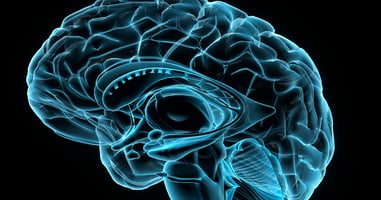Researchers have long sought biological factors to help them understand the development of...
CBT Boosts Expression of Critical Gene in PTSD Patients, Study Finds
 |
At the start of the study, patients diagnosed with PTSD recorded significantly lower expression of FKBP5 as well as decreased volumes of the hippocampus and medial orbitofrontal cortex, compared with control subjects, said Szabolcs Kéri, M.D., Ph.D., a professor of physiology at the University of Szeged in Hungary, and colleagues online in the December Biological Psychiatry.
Following a course of CBT, the researchers found significantly increased FKBP5 expression in the patients with PTSD. After the CBT treatment, hippocampal volumes in patents and control subjects were equal.
“Clinical improvement in individuals with PTSD was associated with increased expression of FKBP5 and increased hippocampal volume, which were positively correlated,” concluded the researchers.




